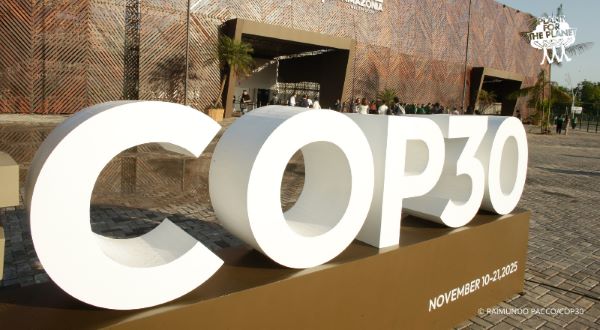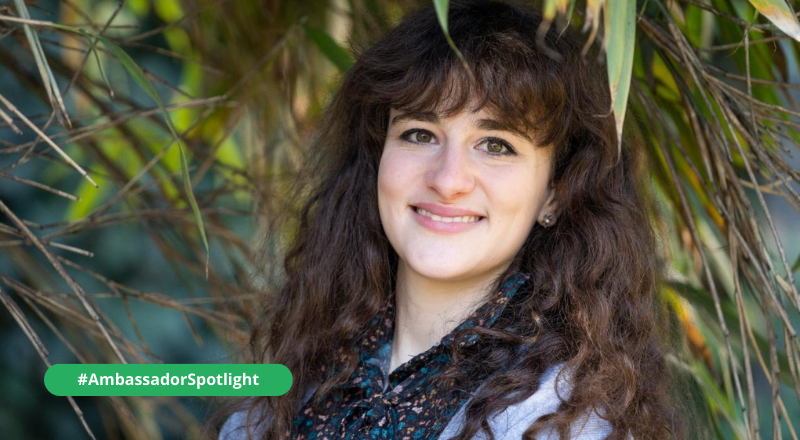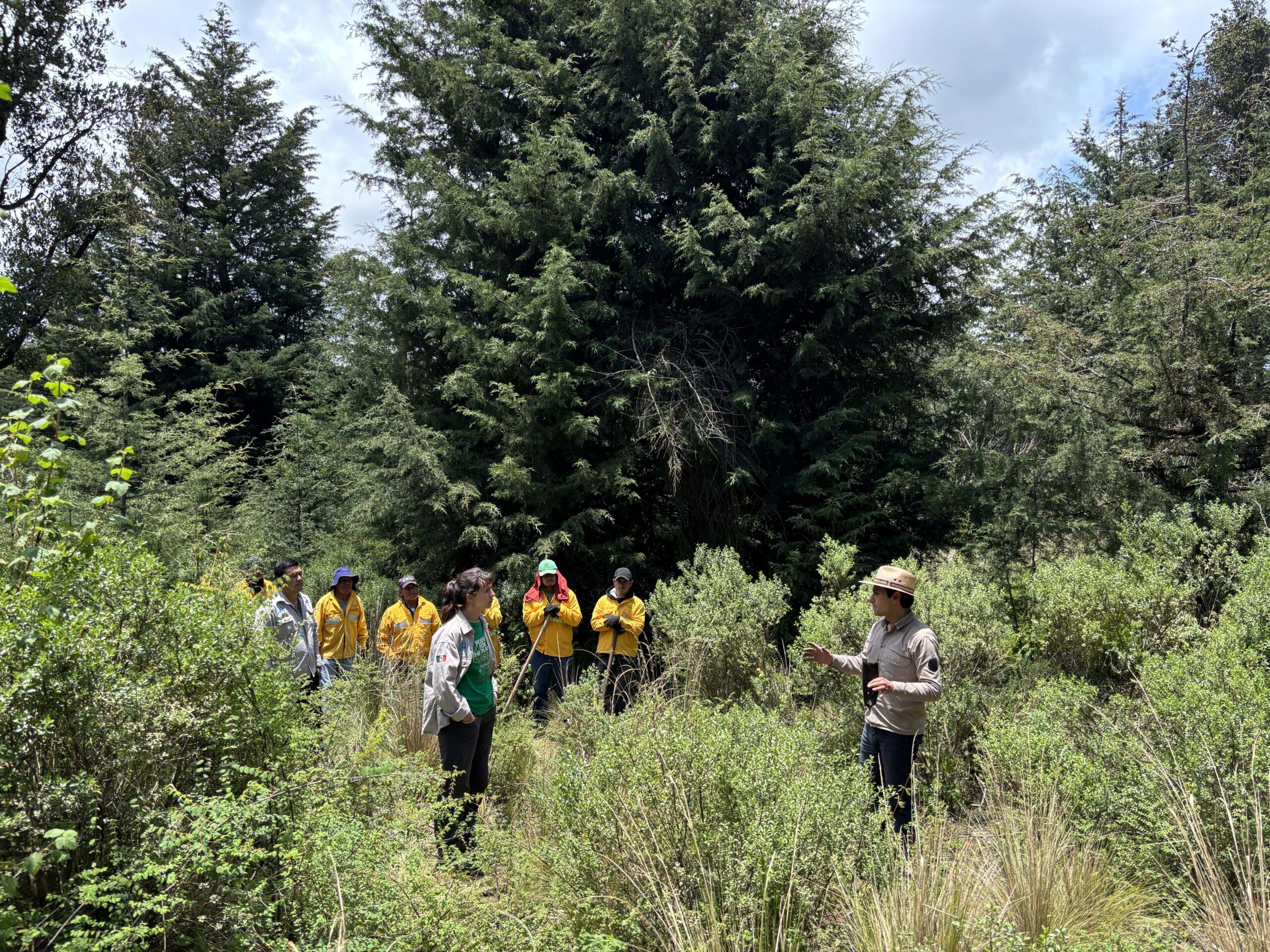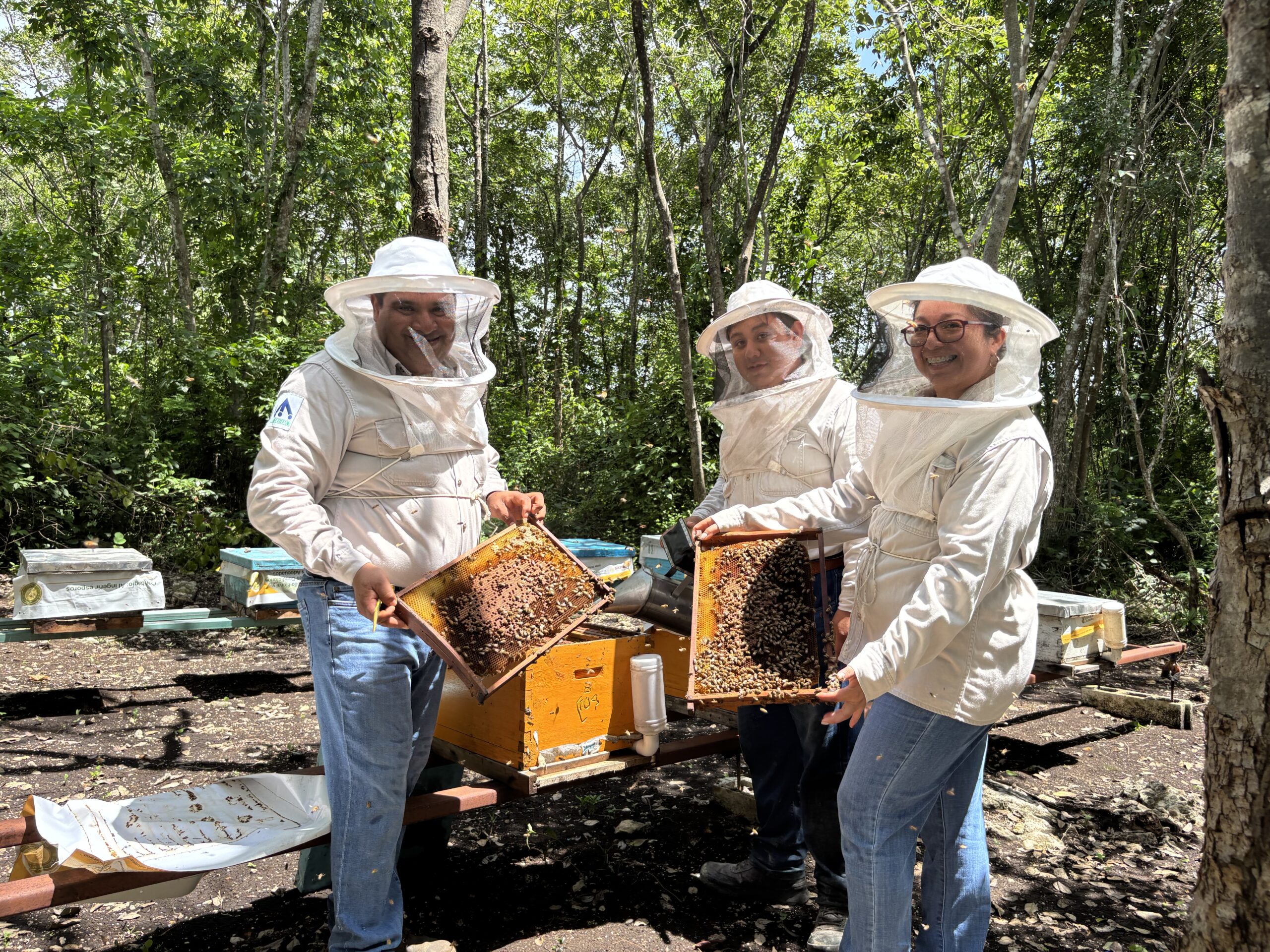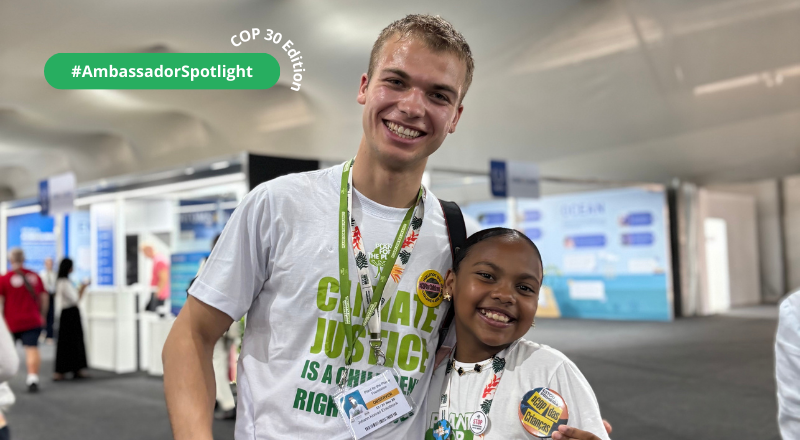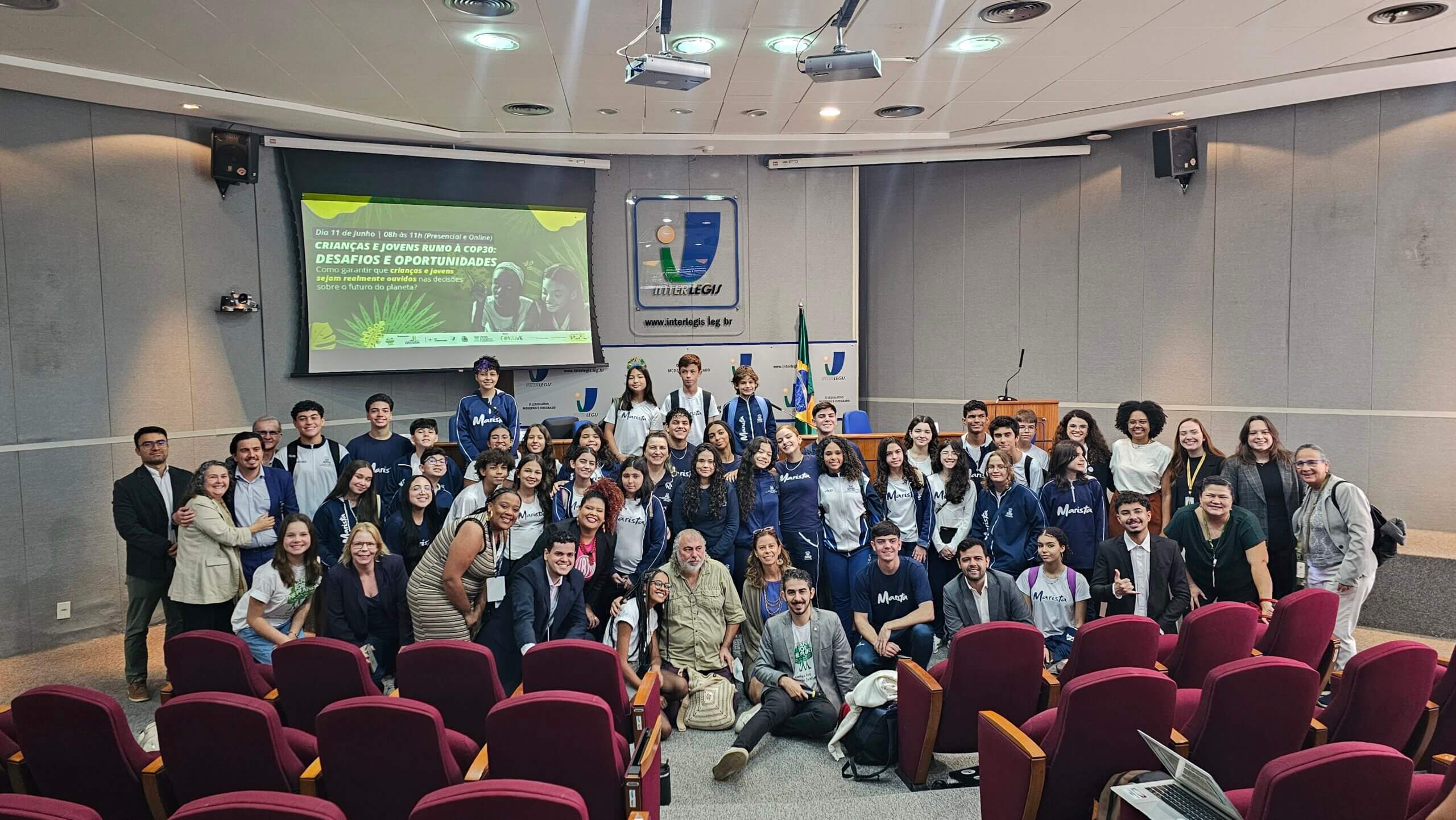
A powerful gathering at Brazil’s National Congress put children and adolescents at the center of climate action with concrete proposals on the road to COP30.
Giovanna, 13, voiced a feeling shared by many teenagers during the event “Children and Youth on the Road to COP30: Challenges and Opportunities,” held on June 11, 2025, at the Federal Senate: their voices are still often ignored in decisions that directly affect their lives.
The meeting brought together students, government representatives, parliamentarians, United Nations agencies, and national and international organizations in a space of active listening and political dialogue, aiming for the effective participation of youth in climate decision-making.
COP30: A conference of children and opportunities?
The 30th United Nations Climate Change Conference (COP30) will take place in Belém, Pará, in November 2025, marking the first time Brazil will host the main global platform for climate negotiations. This is a historic opportunity to place Brazilian youth at the center of climate action. The event held in Brasília was a strategic step to ensure their voices are not only heard but also integrated into decision-making structures.
From Questions to Action: Rethinking Youth Participation
Two guiding questions shaped the discussions:
- What is still missing for children, adolescents, and youth to be recognized as essential to climate solutions—with an active voice in negotiations, not just as symbols of the tragedies we aim to prevent?
- How can we strengthen the participation of children, adolescents, and youth in national politics so their voices guide concrete decisions, rather than remain in symbolic commitments?
These questions sparked deep reflections on representation, inequality, and intergenerational democracy. Throughout the event, young voices made it clear that the problem is not a lack of preparedness or engagement—but a lack of space, support, and genuine listening.
What do children and young people have to say?
During the discussion panels, the questions and reflections posed by students revealed critical thinking, political maturity, and a deep sense of environmental urgency.
On climate denial and personal action: “The root of the problem is disbelief in climate change. How can one person influence those around them to fight that?”
On greening education: “How will trees be planted in schools?”
In the digital age, social media has become the main stage of influence. The cult of image and consumerism overshadows urgent causes. On social media and consumerism: “A society needs heroes, but in today’s digital age, consumerism takes center stage. Everything is about buying, and that ends up affecting ecological education.”
On political engagement: “Talking about the environment is talking about politics. It’s important to vote for people who represent these causes.”
Youth leadership needs structure
Júlia, 12, Climate Justice Ambassador for Plant-for-the-Planet Brazil, put it clearly: “People need to understand that leadership isn’t about age — it’s about attitude. It’s not easy to get support to raise awareness among our generation. Our activism needs structure: financial support, training, mentorship, safety, and accessible spaces.”
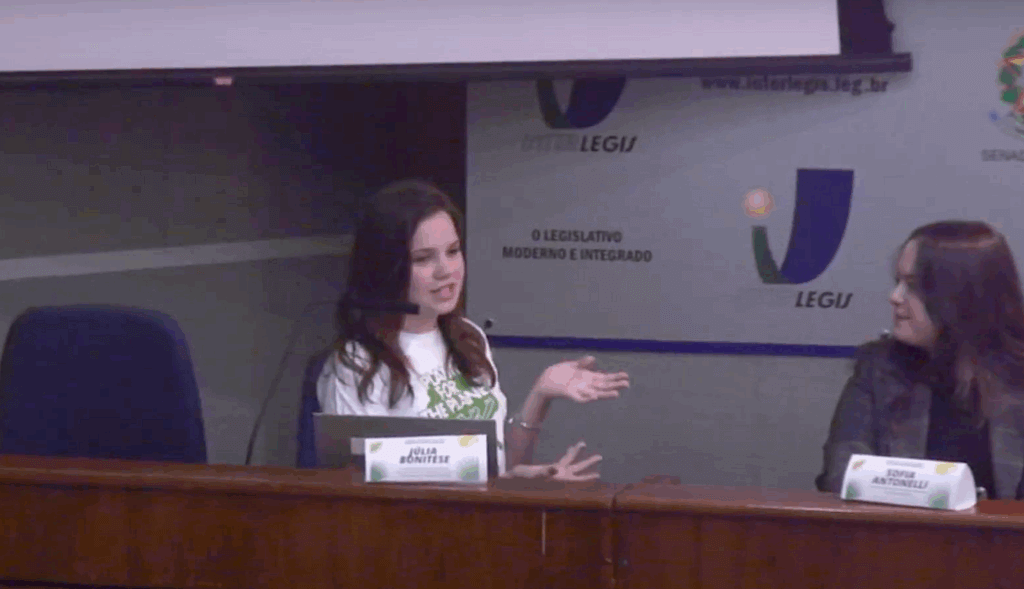
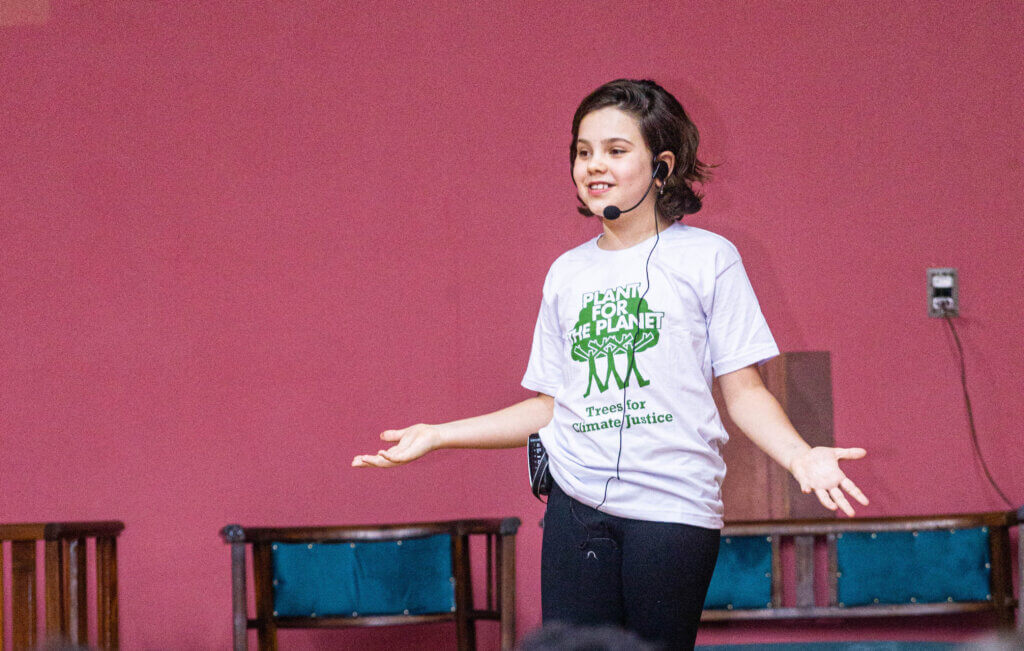
The lack of youth participation is not due to unwillingness. Keully Leal, from the Brazilian Union of Women and CONJUVE, reinforced that schools and student councils are entry points for youth leadership, but without institutional support, those spaces remain undervalued and limited.
A crisis that multiplies inequalities
Júlia Gouveia, from Plan International Brazil and Clica, offered a crucial analysis of who bears the greatest burden from the climate crisis:
“There are social markers that narrow and intensify the impacts caused by this crisis. When we think about gender and racial inequalities combined with the climate crisis, we see that Black girls and ethnic minorities face much greater exposure to overlapping risks, including access to education, development opportunities, and work.”
Her reflection underscores a vital truth: Talking about climate justice also means talking about social justice. This must be reflected in every public policy, law, and negotiation process—including COP30.
Breaking Free from Adult-Centered Systems
“We need to break free from the adult-centered society we live in.”
— Salomão Hage, professor at UFPA and representative of the People’s Summit
This reflection highlights one of the main barriers to child and youth participation in climate decision-making: a social logic that underestimates the capacity of children and adolescents to understand, propose, and act on major challenges.
Recognizing young people as political subjects is the first step toward genuine intergenerational climate justice. As long as their experiences and perspectives are undervalued, we will continue to reproduce a model of symbolic rather than meaningful participation.
Listening is not enough: the future must be built through shared decisions
COP30 can and should serve as a catalyst for change. But the real challenge lies in what happens after the conference: the continuity of actions and the effective implementation of decisions will define its true impact.
Mario Volpi, from UNICEF, emphasized this point: “My reflection is on strengthening the concept of citizenship which guarantees belonging to a society and participation. It’s not just about having a say in various issues, but also about being part of decision-making. We need to renew the rights of children and adolescents. It’s very important to reposition the concept of citizenship in Brazilian society. Human development doesn’t happen through the denial of rights — it happens through expanding rights, social inclusion, and participation.”
We must ensure that the voices of children and young people are an integral part of the decisions that shape the planet’s future. Participation must go beyond isolated moments and become a continuous process of collaboration, where children and adolescents have the autonomy to act and influence climate policies.
Luciano Frontelle, Executive Director of Plant-for-the-Planet Brazil, concluded: “Countries have already discussed and agreed that action for climate empowerment is essential for the implementation of the Paris Agreement. What’s missing now is investment and the implementation of public policies to make that more than just words on a document.”
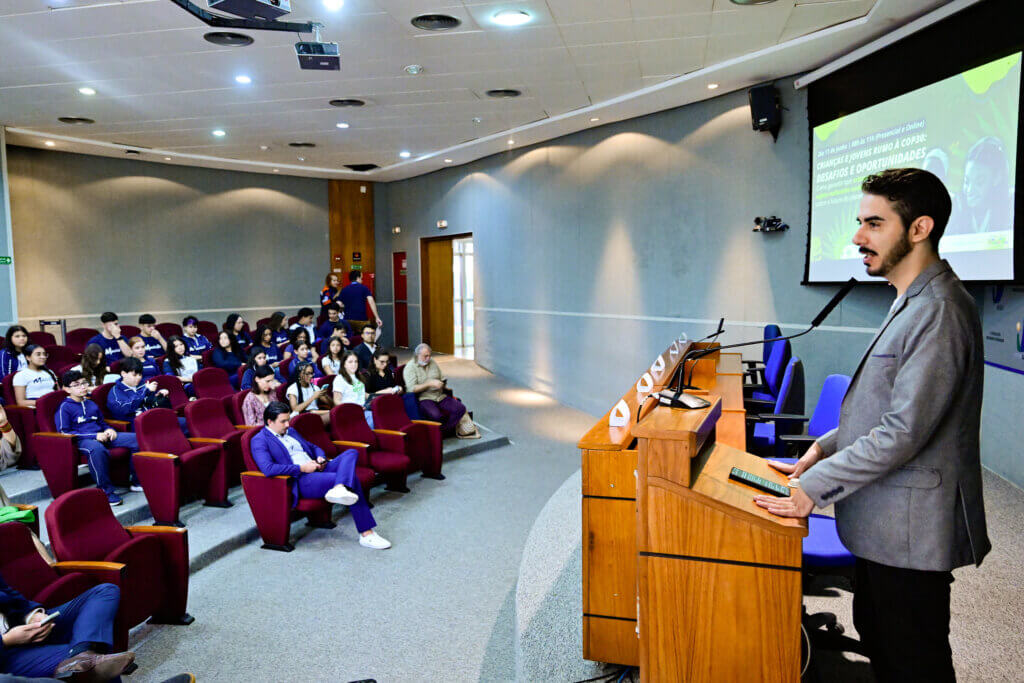
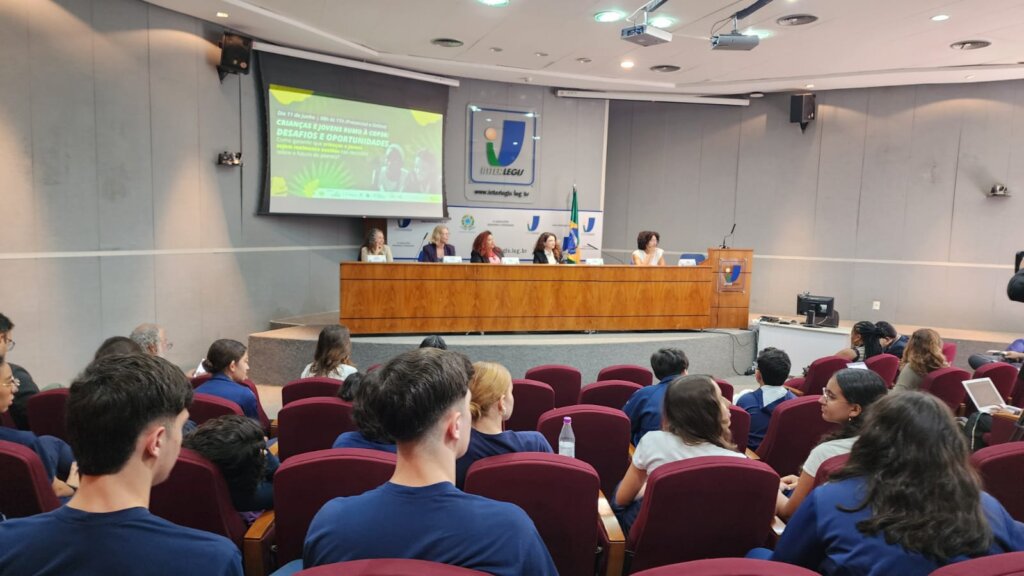
True progress will come through the collective construction of solutions, with open dialogue, transparency, and a commitment to transforming engagement into real power that produces lasting, concrete impact. Only then can we secure a sustainable, just, and inclusive future for all generations.
Interested in youth engagement in Brazil? Read more about the F20 Climate Solutions Forum 2024 and the presence of the Climate Justice Ambassadors here.
